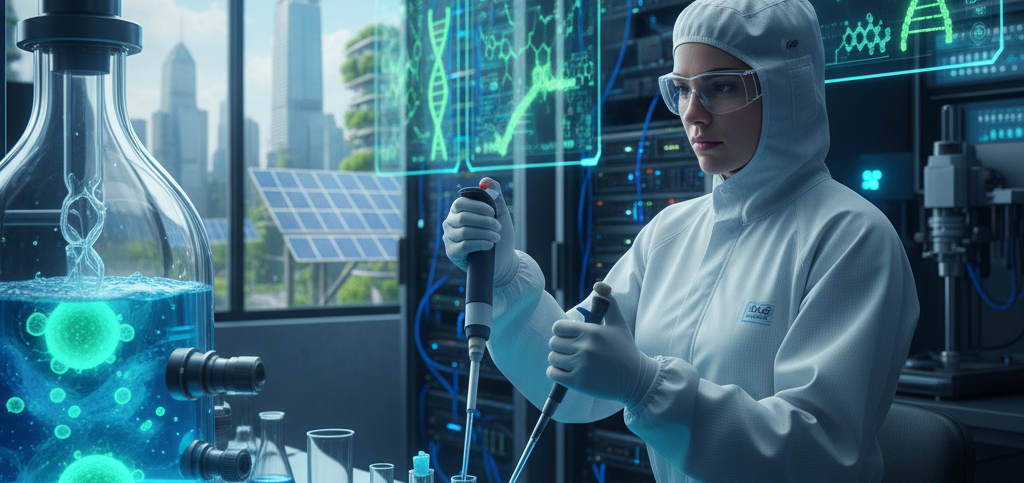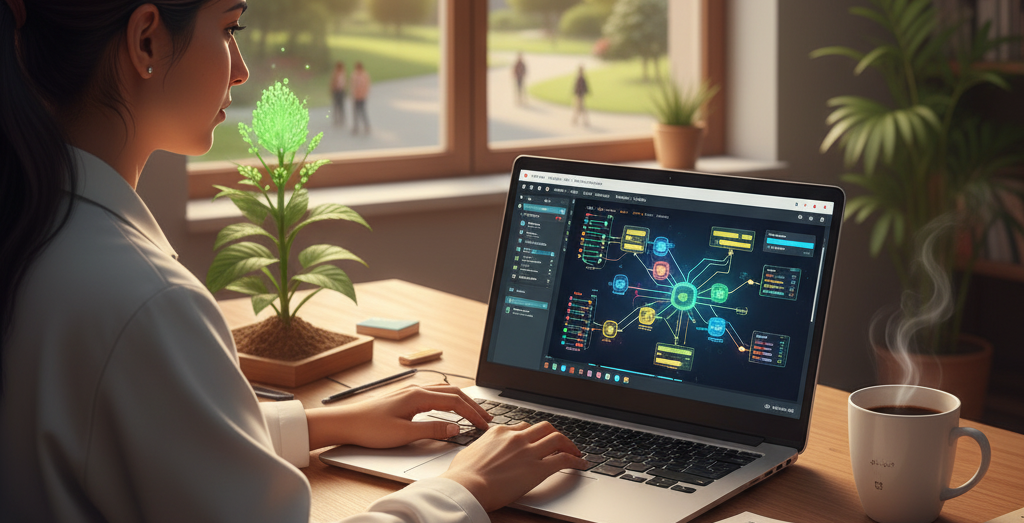Synthetic biology, an interdisciplinary field within science and technology, combines biology, engineering, and computer science to design and construct new biological systems or redesign existing ones. By reprogramming organisms at the genetic level, synthetic biology enables breakthroughs in medicine, agriculture, and sustainability. As of 2025, the global synthetic biology market is valued at $20 billion, per Grand View Research, with applications like lab-grown meat and gene therapies transforming industries. While offering immense potential, the field grapples with ethical dilemmas, biosafety risks, and technical hurdles, shaping a bold yet complex frontier.

The Foundations and Mechanics of Synthetic Biology
Synthetic biology emerged in the early 2000s, building on advances in genetic sequencing and CRISPR gene-editing technology. It uses standardized biological parts, or “BioBricks,” to engineer organisms, much like coding software. For instance, scientists reprogram E. coli to produce biofuels or modify yeast to synthesize insulin. Tools like CRISPR-Cas9 enable precise DNA edits, with 98% accuracy in targeted genes, per a 2024 Nature Biotechnology study. Platforms like Ginkgo Bioworks automate design, scaling production for industries.
Applications are vast: synthetic biology creates malaria drugs 10 times cheaper than traditional methods, per the Gates Foundation, and develops crops resistant to drought, boosting yields by 20%. However, engineering complex systems remains challenging—unintended genetic interactions can disrupt outcomes, and scaling lab results to industrial levels is costly.
Opportunities for Innovation and Impact
For researchers, synthetic biology accelerates discovery. In medicine, engineered T-cells in CAR-T therapies achieve 90% remission rates in certain leukemias, per a 2024 Lancet study. In agriculture, bioengineered crops like Golden Rice combat vitamin deficiencies, benefiting 500 million people globally. Environmental applications include bacteria that degrade plastics, reducing landfill waste by 30%, per a 2023 Science Advances report.
Businesses gain from synthetic biology’s versatility. Startups like Impossible Foods use engineered yeast to produce plant-based meat, capturing 15% of the alternative protein market. Biofuel companies like Amyris leverage synthetic microbes, cutting production costs by 25%. Investors fuel growth—venture capital in synbio reached $8 billion in 2024, per SynBioBeta—while open-source repositories like iGEM democratize access for smaller labs.

Challenges and Ethical Considerations
Synthetic biology faces significant hurdles. Off-target gene edits, occurring in 1-5% of CRISPR applications, risk unintended mutations, per a 2024 Cell study. Biosafety concerns loom—engineered organisms could disrupt ecosystems if released, prompting strict regulations like the EU’s GMO laws. Scalability is expensive; industrial bioreactors cost $50 million, limiting adoption to well-funded firms.
Ethical debates are intense. Gene-editing human embryos, as in the 2018 CRISPR baby controversy, raises moral questions, with 70% of global scientists opposing non-medical edits, per a 2024 Pew survey. Intellectual property disputes and unequal access—95% of synbio patents are held in the Global North—risk widening biotech divides. Environmental impacts, like energy-intensive lab processes, also demand greener solutions.
Strategies for Success and Cultural Impact
Researchers can succeed by using AI-driven design tools, like Benchling, to predict genetic outcomes, reducing errors by 20%. Collaborations, such as MIT’s Broad Institute partnerships, accelerate innovation. Businesses should prioritize biosafety protocols and transparent public engagement to build trust. Open-source platforms like BioBricks Foundation lower barriers for startups. Staying informed via journals like Synthetic Biology ensures alignment with advancements.
Culturally, synthetic biology captivates imaginations, featured in media like New Scientist and sci-fi like Gattaca. AI-driven modeling, optimizing genetic circuits, enhances efficiency. For science and tech enthusiasts, engaging with platforms like iGEM or supporting bioethics initiatives fosters participation in this transformative field.
Synthetic biology holds the promise of engineering life for a better future. By navigating its challenges with ethical and innovative strategies, researchers and industries can unlock its potential to address global needs sustainably.
